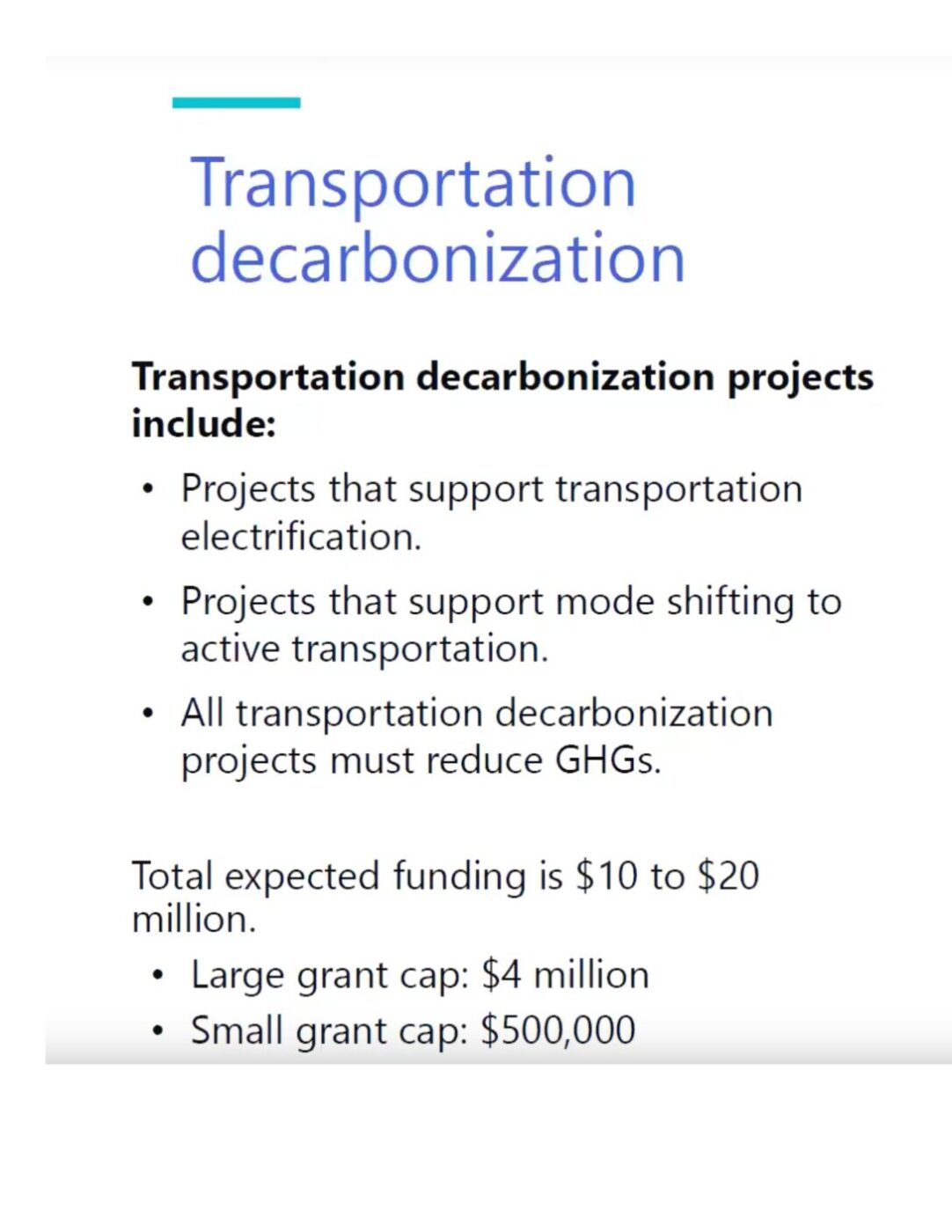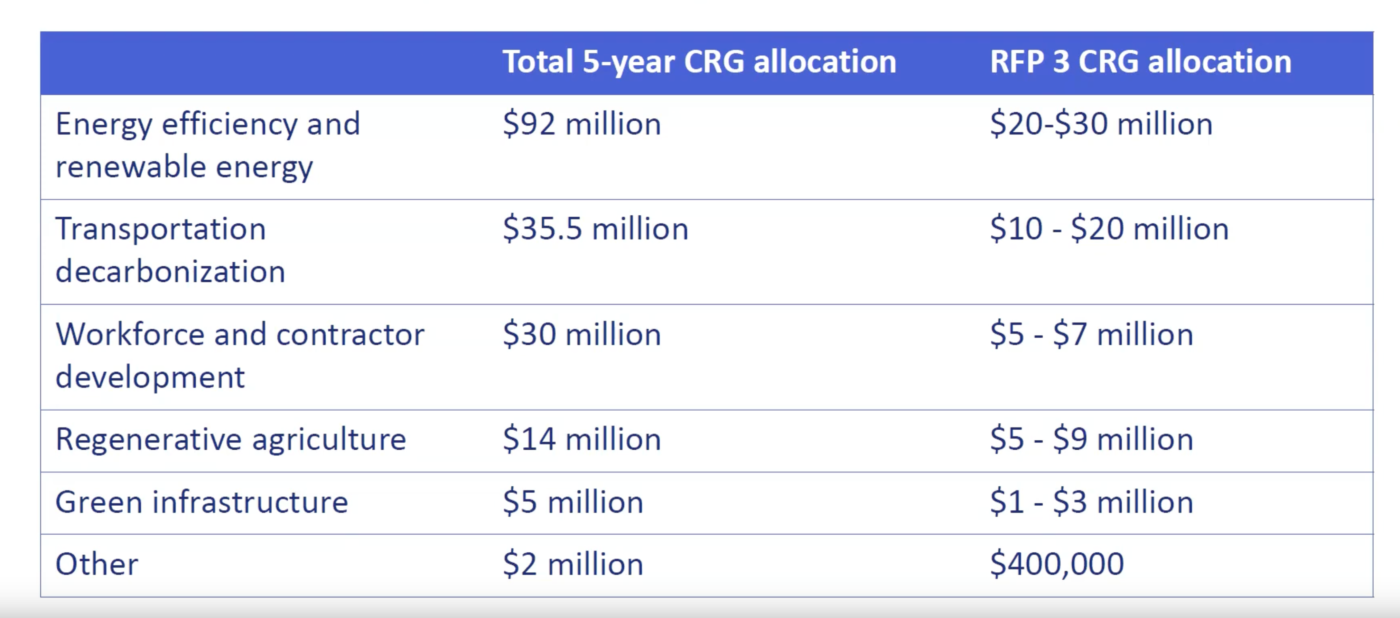The Portland Clean Energy Fund (PCEF) announced the third round of its Community Responsive Grants (CRG) last month. This will be the first year with a Transportation Decarbonization category, and bicycle projects appear to have a large role to play.
Sam Baraso, PCEF’s Program Manager, called Transportation Decarbonization “our newest and most exciting funding area,” with this cycle expected to fund between $10 and $20 million in projects.
Readers might recall that PCEF funded a $20 million e-bike rebate program earlier this year, but, as many have pointed out, owning a bike is not the same as using it, and that’s where the grants come in. The Transportation Decarbonization category will fund projects that support “mode shifting to active transportation” and also “transportation electrification.”
This year’s Request For Proposals (RFP 3) describes a blend of grant types, including planning and implementation grants of different sizes: 5 to 10 planning grants, 10 to 20 small implementation grants, and 10 to 20 large implementation grants.
Bicycle advocates should be encouraged that the online grant-writing resources use bike-related projects as examples: one example involves a grant for installation of bike racks, and the other is a bike bus program which also seeks to improve safety at a nearby intersection.
PCEF targets its investments toward “priority populations” that are particularly vulnerable to the effects of climate change — like people with low incomes who live in heat islands without tree canopy or cooling — but also toward workforce and contractor development, so that electrification and green revolution opportunities don’t pass over young people, people of color, and women.
PCEF’s Climate Investment Plan will allocate roughly $750 million dollars over the next five years, or about $150 million annually. This year’s Community Responsive Grant round expects to award $40-$60 million to about 30 grants over six different categories (see above).
Note that the $40-$60 million going toward community grant funding is less than the $150 million yearly to be distributed by the Climate Investment Plan. The difference between those monies was directed toward City of Portland programs: $20 million for the e-bike rebate; a $25 million boost for the transportation wallet; and in December Commissioner Carmen Rubio directed $112 million to the cash-starved Portland Bureau of Transportation for active transportation, transit and community programming.
Voters passed Portland Clean Energy Fund measure in 2018. It levies a 1% surcharge on the Portland revenue of large retailers—those with a gross national revenue of over $1 billion and local sales of at least $500,000. Revenue from the surcharge is used to fund projects which reduce greenhouse gas emissions and improve climate resilience in ways that advance racial and social justice.
The deadline for grant applications is February 1, and applicants must be a qualified nonprofit organization or have a qualified fiscal sponsor. If you’ve got a bike-related dream that just needs a bit of funding to become reality, don’t miss this opportunity!




